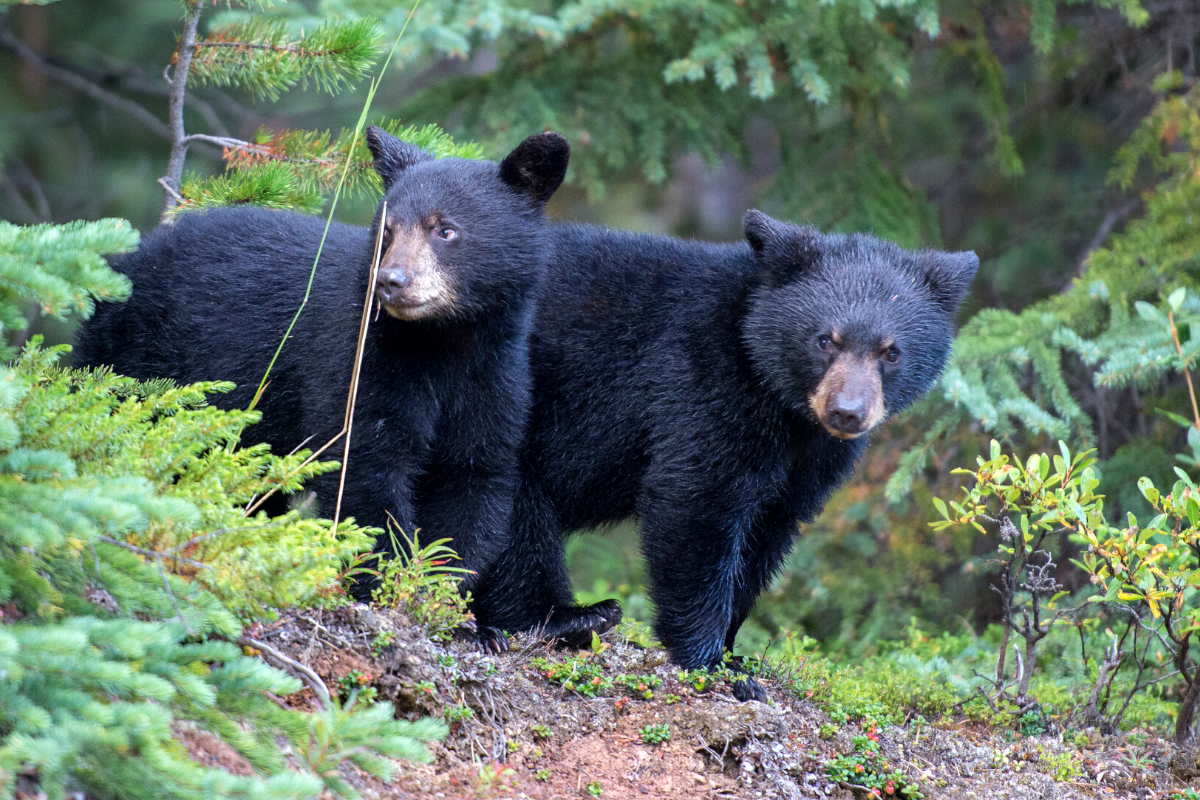TRENTON, New Jersey (Nov. 29, 2022) ─ Today, a coalition of state and national animal protection groups including Animal Protection League of New Jersey, the Humane Society of the United States and Friends of Animals, launched an emergency court challenge to the black bear trophy hunt that is scheduled to begin Dec. 5. The hunt was authorized by the New Jersey Fish and Game Council earlier this month. Hunt clubs nominate six of the Council’s eleven members.
The animal groups are challenging the Council’s misuse of an emergency rulemaking loophole to bypass required procedures that guarantee the public the right to weigh in and require the Council to respond to said public comments. Despite having ample time to comply with these procedures, the Council forced through a last-minute emergency rule, leaving the public no time to respond.
The lawsuit seeks emergency relief stopping the Dec. 5 hunt. The hunt targets hundreds of bears and sets no express limitation on the number that can be killed. The Council advanced the proposal without counting the number of bears in New Jersey and without performing a scientifically sound estimate of the population. The Council then went further by claiming without evidence that the state’s bear population will expand by a preposterous 33% in just two years without a hunt. That speculation has no basis in science; black bears are extremely slow to reproduce.
“The Council is not above the law and should not be allowed to impede public input by fabricating an ‘emergency,’” said Jennifer Best, Director of Friends of Animals Wildlife Law Program. “The only thing that will keep the public safe and black bears wild is education on simple and effective solutions, such as bear-resistant trash cans and removing bird feeders from March through November.”
The Council claimed that emergency action was necessary due to an increase in reported bear incidents. But the number of incidents reported this year is not unusually high compared to many other years during which hunts were conducted. In fact, over 90% of bear-related complaints were reports of routine bear behavior and incidents that pose no imminent danger to the public, such as sightings of injured bears and bears seeking food from unsecured garbage cans and bird feeders. To date, the state has failed to take steps to establish the trash control programs that have successfully mitigated conflicts in Western states.
“The Fish and Game Council unlawfully used emergency powers to ram through an unpopular and unnecessary hunt while denying New Jersey citizens their due process rights under state law,” said Kate Hendrix, staff attorney for the Humane Society of the United States. “The public is not facing any ‘imminent peril’ from New Jersey’s bruins, and the numbers that the agency cites to claim otherwise are misleading and taken out of context. The real emergency is the threat hundreds of New Jersey’s bears will face if this horrific, unscientific hunt is not stopped.”
Scientific studies show only a weak correlation between the population of bears and bear attacks. Bear-human interaction is more closely connected with specific human behaviors that drive encounters. Some states with large black bear populations have fewer conflicts than states with much smaller bear numbers, a study by the Association of Fish and Wildlife Agencies found. California, for example, which has 35,000 bears, reported just 259 interactions.
Black bears are among the slowest reproducing land mammals in North America. Trophy hunts and high kill rates over bait can lead to irreparable population damage. Hunting bears causes additional mortalities from infanticide when father bears are killed and new males enter their territory. When the state sanctions a hunt, poaching incidents go up—there has already been a case earlier this month when four bear cubs were killed in an apparent poaching incident in Passaic County. Public safety is also threatened by a bear hunt in New Jersey, where hunting accidents have killed more people than bears have.
“In addition to the disingenuous emergency, the New Jersey black bear hunt is illegal because the Comprehensive Black Bear Management Policy is arbitrary and capricious and fails to meet the standards set out by the state Supreme Court,” stated Doris Lin, Legal Director of APLNJ, who successfully overturned the state’s bear management policy in 2007.
#
The Humane Society of the United States fights the big fights to end suffering for all animals. Together with millions of supporters, we take on puppy mills, factory farms, the fur trade, trophy hunting, animal cosmetics testing and other cruel industries. Through our rescue, response and sanctuary work, as well as other direct services, we help thousands of animals in need every year. We fight all forms of animal cruelty to achieve the vision behind our name: a humane society.
Learn more about our work at humanesociety.org. Subscribe to Kitty Block’s blog, A Humane World. Follow the HSUS Media Relations department on Twitter. Read the award-winning All Animals magazine. Listen to the Humane Voices Podcast.
Darien, Conn.-based Friends of Animals, an international animal protection organization founded in 1957, advocates for the rights of animals, free-living and domestic around the world. www.friendsofanimals.org
Animal Protection League of NJ promotes evidence-based programs to mitigate conflicts between humans and wildlife, and works for greater compassion for all animals. Please visit APLNJ.org for more information.

